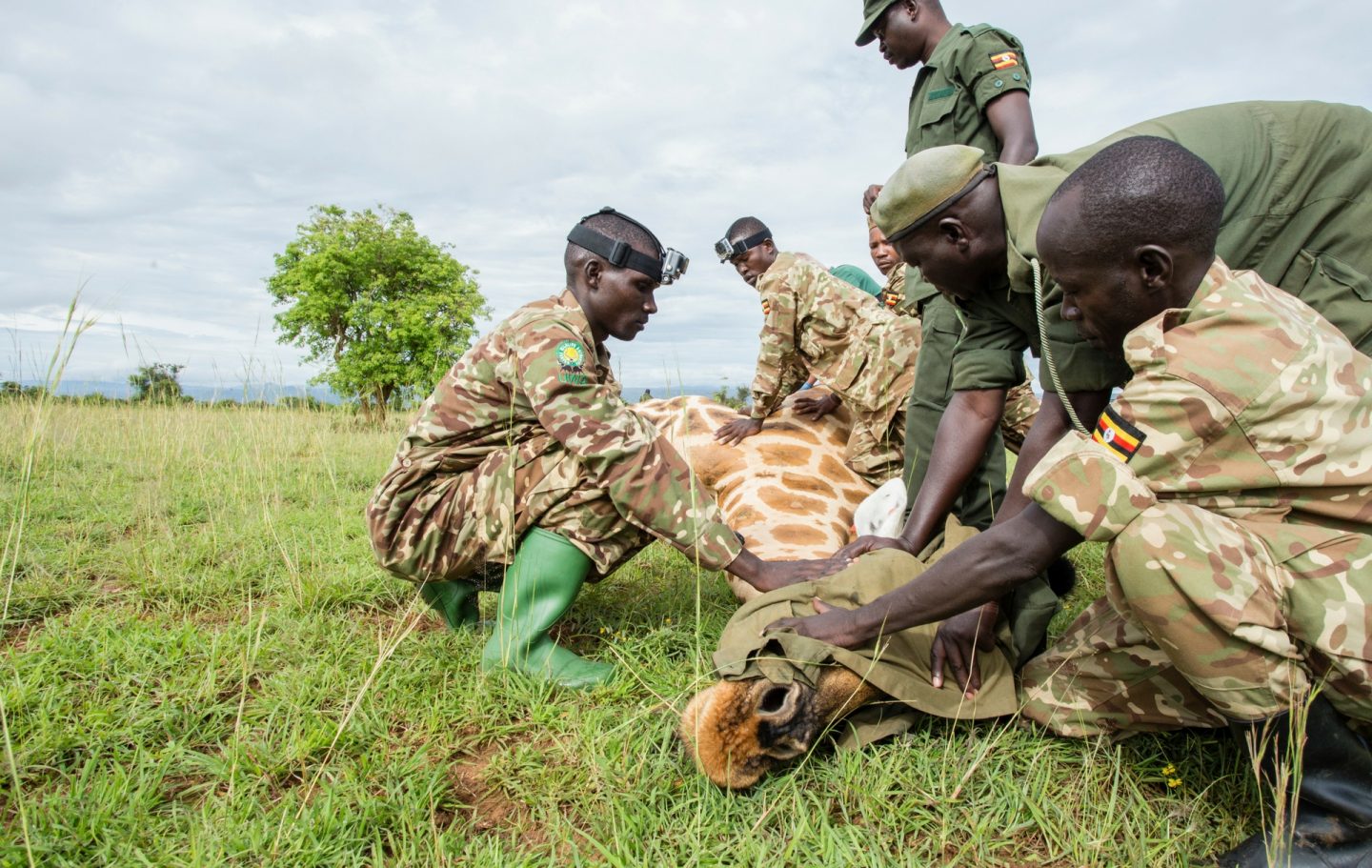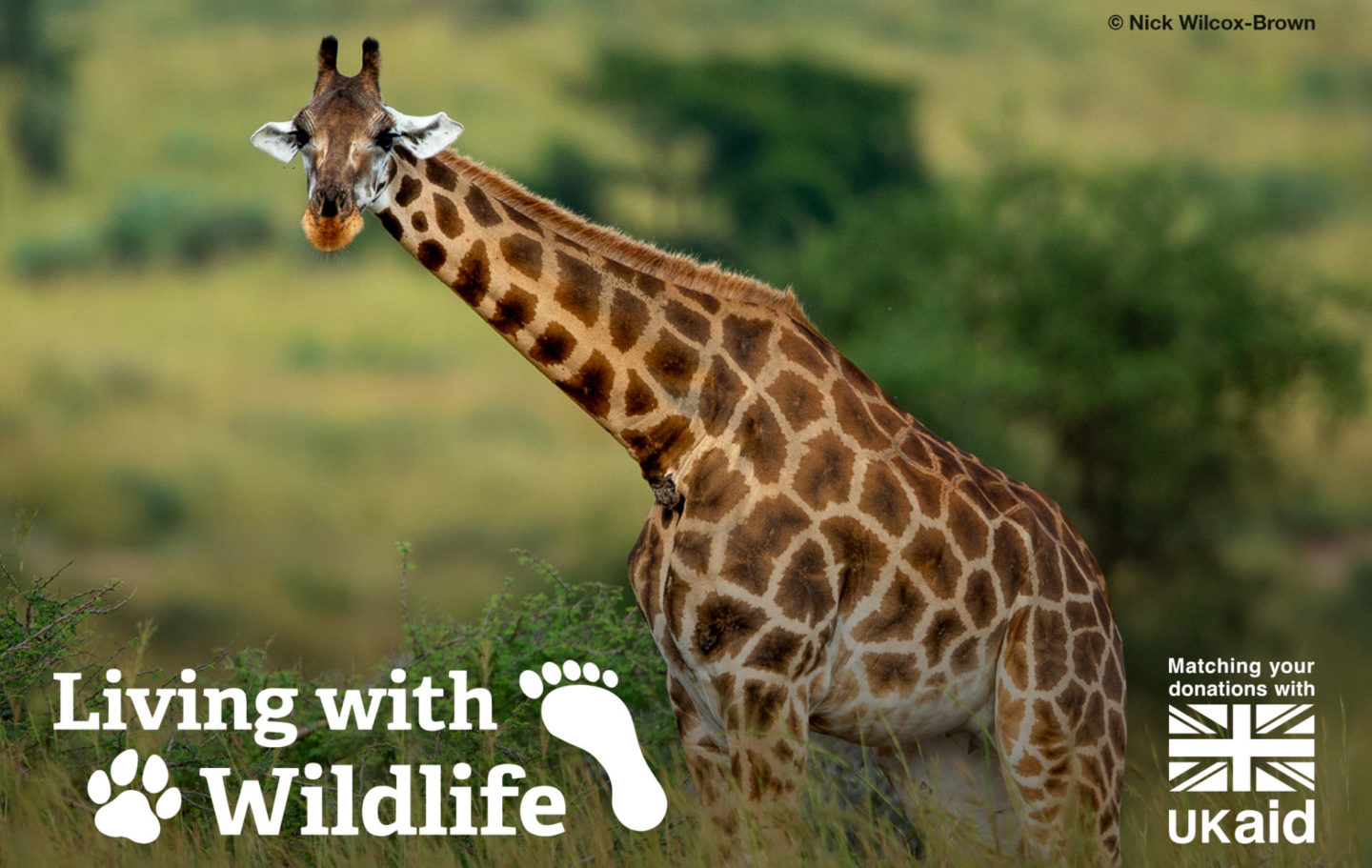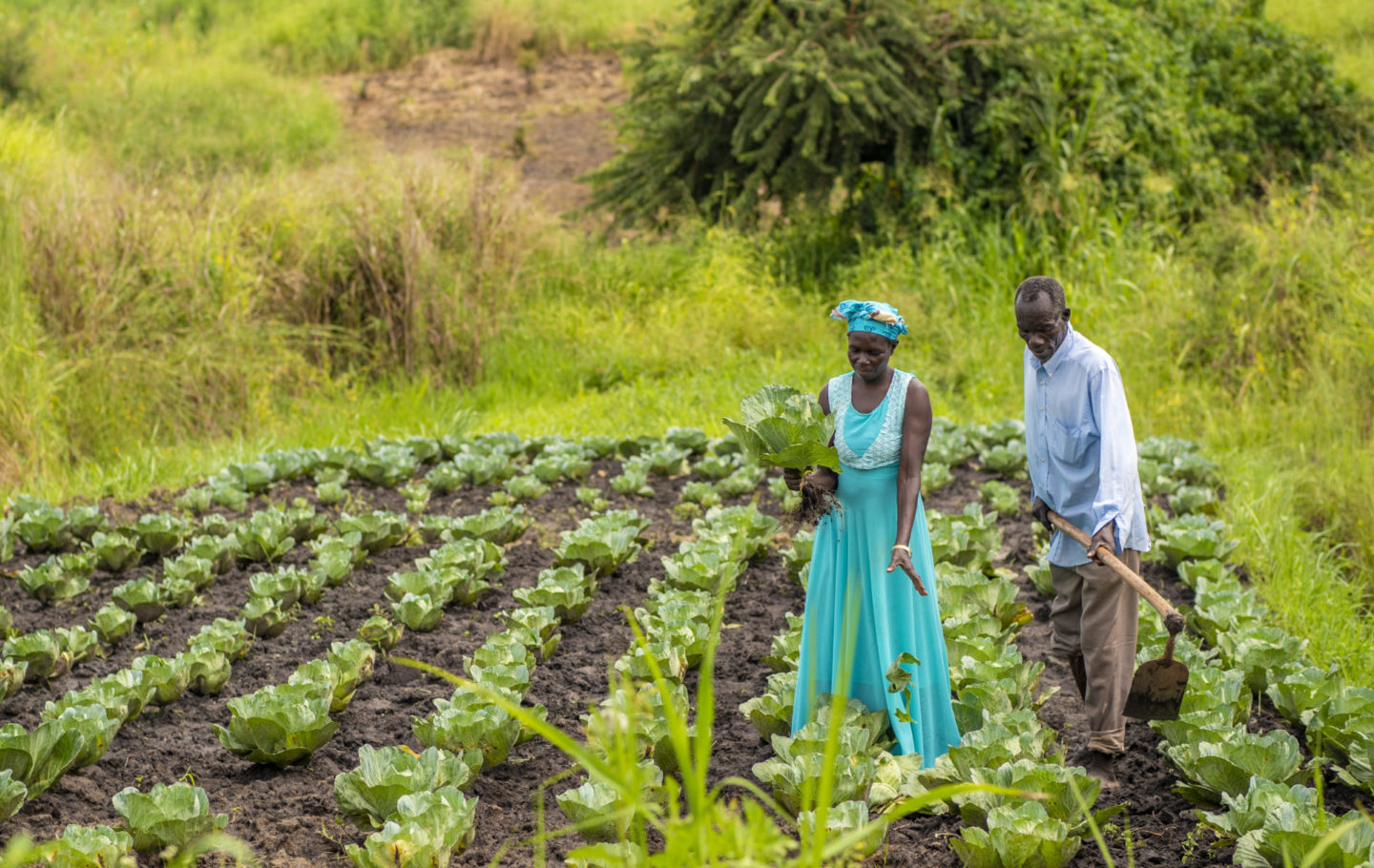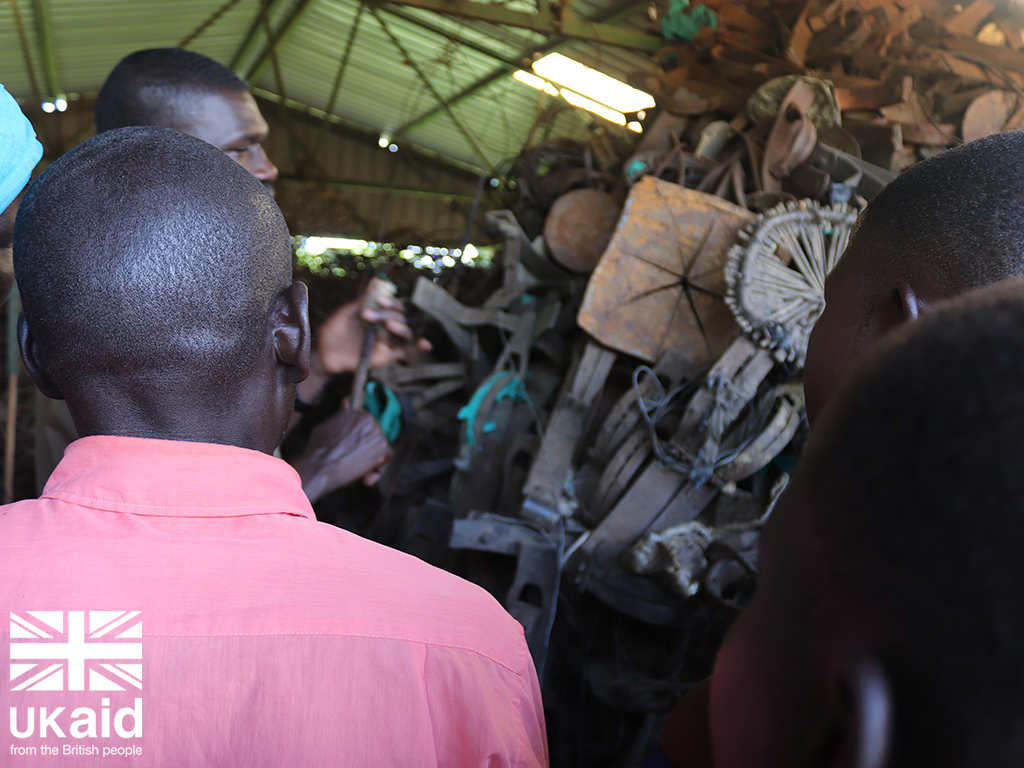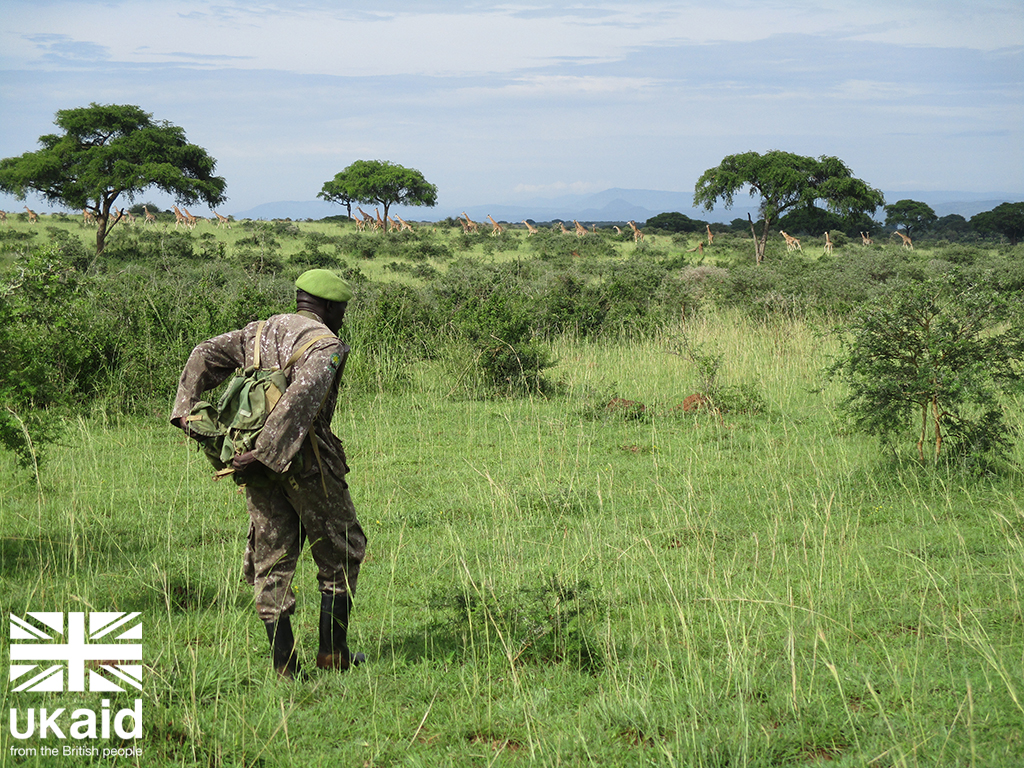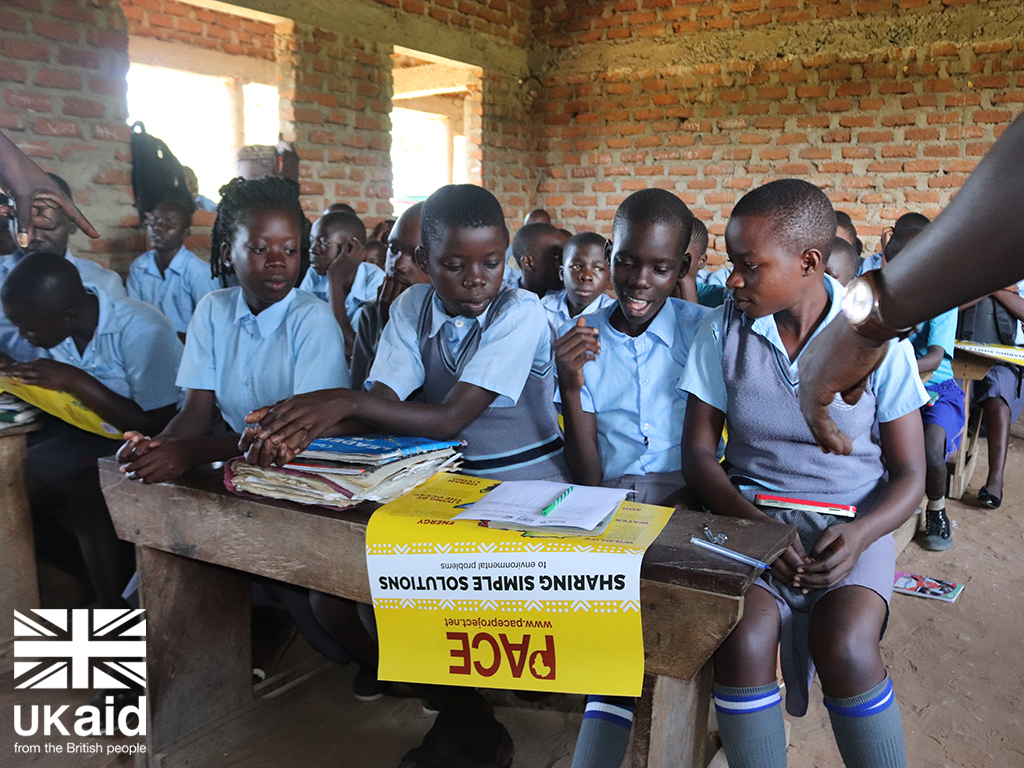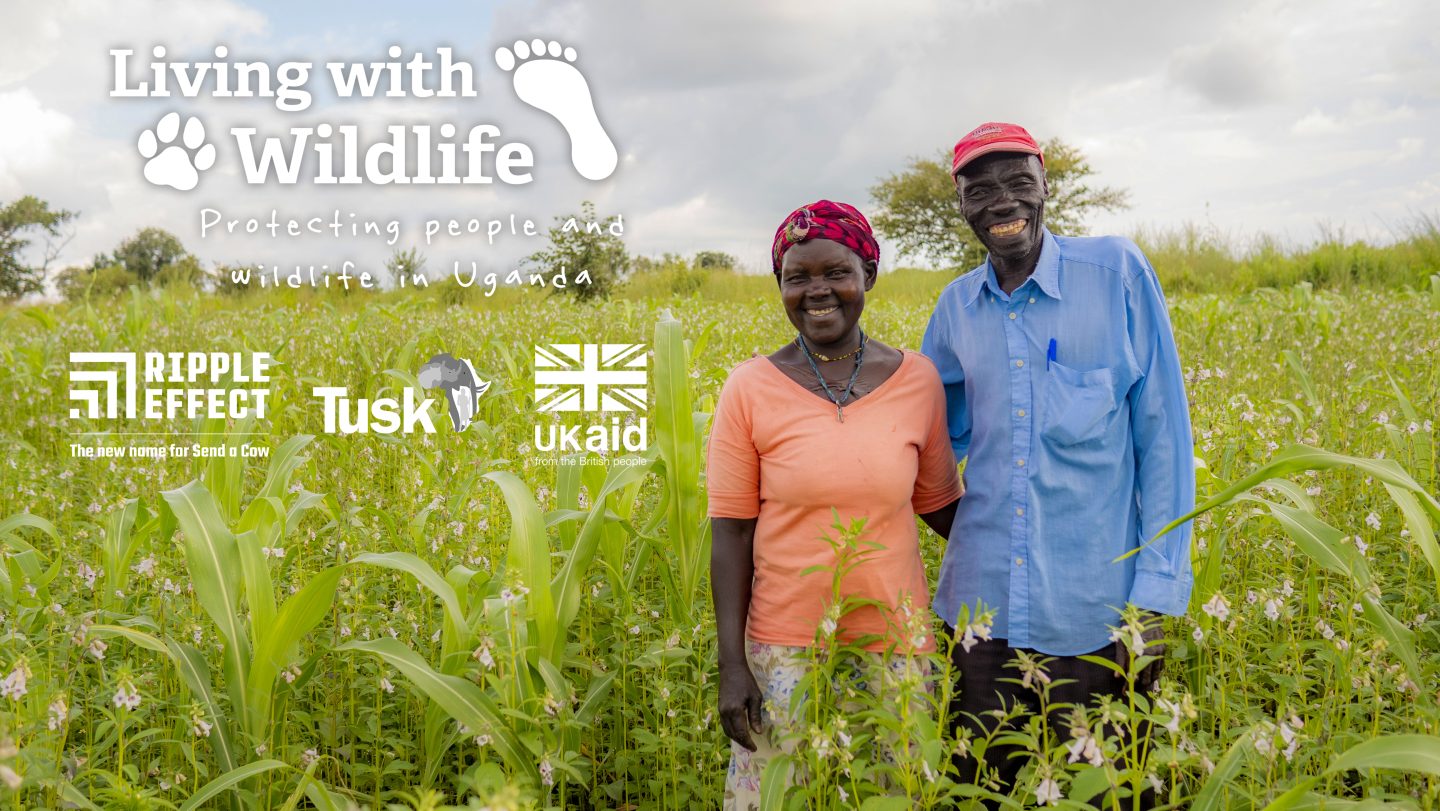
The Living with Wildlife appeal ran for three months at the start of 2020, and thanks to the generosity of Tusk and Ripple Effect’s supporters, as well as generous grant from the Dulverton Trust, the appeal significantly exceeded its original fundraising target: £1.3million was raised overall, and this was generously matched by the UK government.
The funds were used to ensure that 38,000 people now have improved food security, increased livelihood opportunities, and more positive relations with the Uganda Wildlife Authority.
Ripple Effect helped families around the national park to improve their crop yields and to have nutritious food all year round. Food security was improved by 47%, while 31% of those trained are now earning above the international poverty line of £1.90 per day. The rest have built resilience and skills that will help them to succeed in the future.
Through Tusk’s partnership with the Uganda Conservation Foundation (UCF), 120 young people received vocational training in trades that were specifically chosen to meet local demand and offer immediate employment opportunities and a steady income without turning to the park’s natural resources; 78% found jobs after their training ended. Alongside this, and through Tusk’s PACE programme, 13,693 people were educated on the importance of the national park, wildlife and protecting endangered species such as the Rothschild’s giraffe (for which the park is one of their greatest strongholds). This included children at forty different schools, helping to build the next generation of conservationists. This was reinforced by incredibly meaningful trips into the national park, which were conducted for 350 schoolchildren and 510 community members. For many, this was the first time that they had been able to experience the park in this way and to develop a greater appreciation of its wildlife. This was reinforced with talks from the rangers and a demonstration of the traps and snares they have removed during their patrols.
“I saw very many poacher tools that the rangers collected, this shows the rangers are doing a great job. After the park visit, I came back to my village and encouraged poachers to stop poaching wildlife. Three poachers have since stopped poaching after following my advice.”
Opar Aldo, Local Council Chairperson, following one of the park visits
Thanks to the Living with Wildlife Project, 58% of community members now report a ‘positive’ or ‘very positive’ relationship with the Uganda Wildlife Authority, compared to just 22% at the start of the project. This is all the more impressive and important because of all the unforeseen challenges that the project had to contend with.
Towards the end of the appeal, the Covid pandemic struck. Tourism to Murchison Falls collapsed as restrictions to control the spread of the virus were introduced. Without tourism, no revenue is generated to pay rangers or to support the protection of the park: the 20% of tourism income that the Uganda Wildlife Authority invests in the community evaporated, and the only vibrant economy folded in an area where unemployment was already rife. As feared, the hunting and trapping of wildlife began to soar, along with the collection of natural resources such as firewood, as people tried to make ends meet.
The challenges presented by Covid were added to as the River Nile flooded to levels higher than in recorded history. The floods displaced thousands of fishermen and farmers living along the banks of the Nile and the shores of Lake Albert, many of whom resorted to poaching as an alternative. Hippos that normally frequent the shallow areas and sandy beaches were meanwhile pushed into community areas, feeding on crops and putting villagers in great danger. The Living with Wildlife project’s role in supporting and promoting human-wildlife co-existence therefore became greater than ever.
The floods were then followed by a two-year drought. Ripple Effect responded by introducing drought-resistant, fast maturing cassava seeds, a reliable staple crop even in tough droughts. This was hugely successful, with farmers outside of the project adopting it too. Twelve new solar-powered mini-irrigation systems were also introduced, and cooperatives set up so that farmers could share the technology and, crucially, water their crops, using the River Nile.
While poaching didn’t decrease as expected, because of the extra challenges, all the above interventions have brought the park and community closer together, and will help reduce pressure on the park in the long-term while supporting the local community through an extremely vulnerable moment in time.
“The Living with Wildlife project has broken boundaries for the community living next to the park to stop thinking that the park is for foreigners and given an opportunity for them to appreciate the beauty of wildlife. The project has transformed the lives of what would be poachers to wildlife protectors through livelihood supported projects.”
Wilson Kagoro, Community Conservation Warden, Uganda Wildlife Authority

